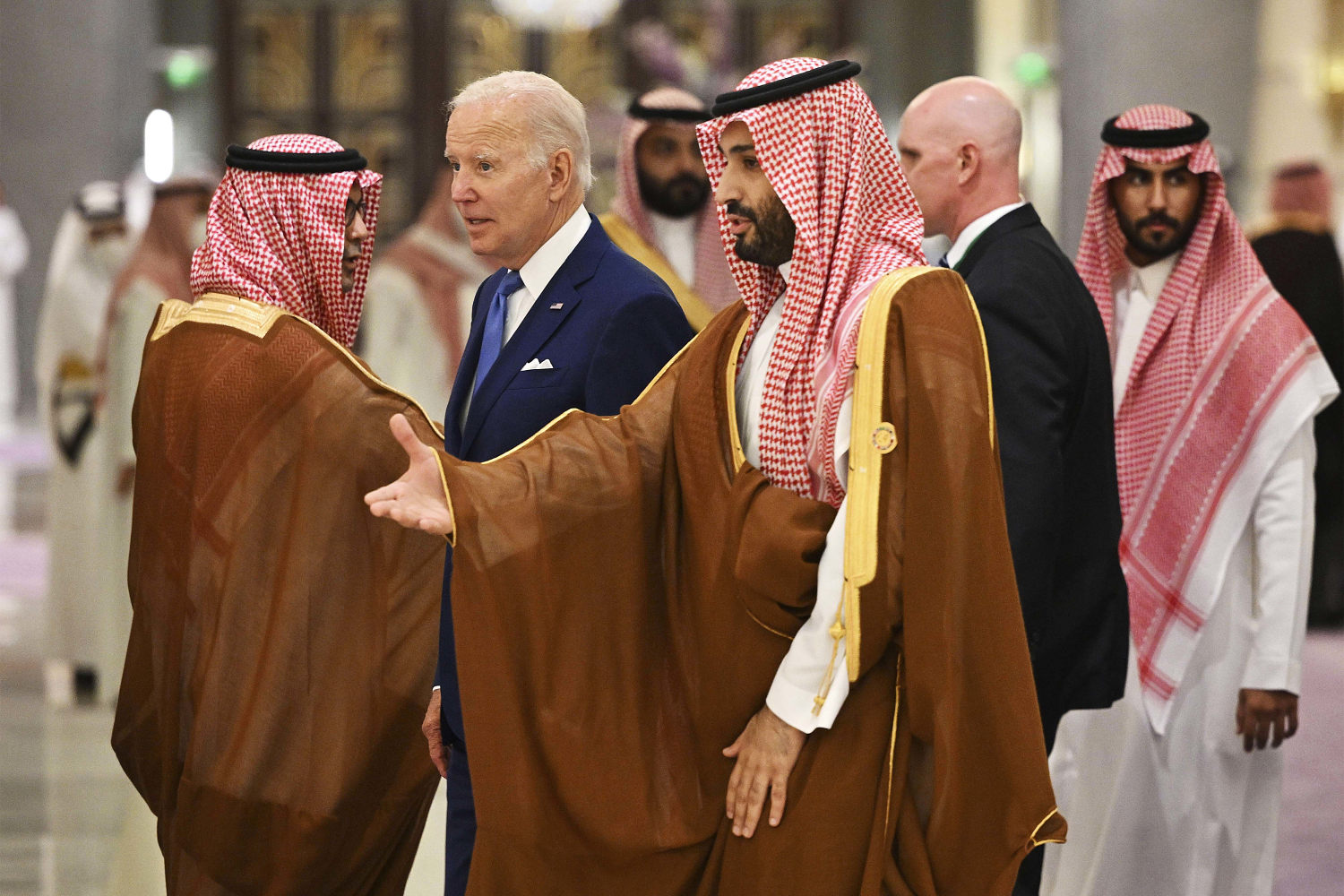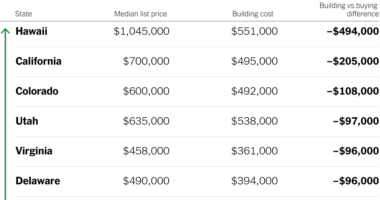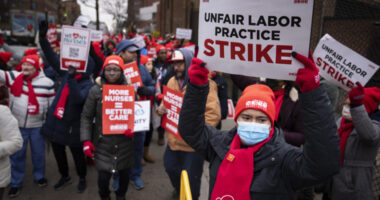The United States is making progress toward a landmark agreement that would see Saudi Arabia normalize relations with Israel in exchange for a U.S. defense pact and help developing its own civilian nuclear program, two diplomatic sources told NBC News.
The complex talks are picking up steam and officials on all sides have voiced growing optimism in recent days that they could soon come together in a deal that would transform the political landscape of the Middle East and deliver a major foreign policy victory to President Joe Biden.
Formal recognition of the Jewish state by the Arab world’s most influential power would represent a tectonic shift in the region after more than half a century of conflict and animosity. It could also represent a diplomatic coup for the Biden administration, bringing together two close U.S. allies as it seeks to ward off China’s bid to rival Washington as a global power broker.
But huge questions remain, including what it would mean for the Palestinians — the deal would see them granted as-yet undefined land in the West Bank, the two sources said. Offering Riyadh a formal pact of mutual defense, an arrangement on par with U.S. guarantees to key allies such as Japan and South Korea, could also complicate the domestic politics of any deal.
If the deal were to come together, U.S. officials believe it would be early next year, before the presidential election campaign makes it difficult to get 67 votes in the Senate, which has to ratify the defense treaty and would need to approve helping the Gulf kingdom’s de facto ruler, the powerful Crown Prince Mohammed bin Salman, in his civilian nuclear ambitions.
Discussions about the Saudi defense pact were first reported by The New York Times.
According to a senior U.S. official, Israel also wants a defense treaty with the U.S. to match any new Saudi treaty but the U.S. has not agreed to that. Israel already gets almost $4 billion a year in U.S. military assistance and administration officials believe that may make it harder to get an already complicated agreement through the Senate.
A recent poll from the Quincy Institute showed that just more than half of Americans would oppose an agreement between the U.S. and Saudi Arabia that would see Washington committing U.S. soldiers to defend the Saudis in the event of a war. The exact terms of any defense pact are unclear.
But a deal of this scale would be “transformative,” Secretary of State Antony Blinken told MSNBC on Thursday. He cautioned that there were still “a lot of moving pieces,” and that landing all of them would take “a tremendous amount of work.”
“We’re in the middle of it; it’s still a challenge,” he added.
National security adviser Jake Sullivan has made two trips to Saudi Arabia in recent weeks and sources familiar with his travel said he was actively engaged in the talks.
For Biden, the deal would represent a major foreign policy victory ahead of the 2024 presidential election, potentially surpassing that of then-President Donald Trump, who helped forge the historic Abraham Accords, a series of agreements involving Israel, the United Arab Emirates and Bahrain signed in 2020 to normalize Israeli ties with the Gulf states.
Relations between Israel and Saudi Arabia have warmed up in recent years, driven by mutual acrimony with their common regional rival, Iran.
Even though Riyadh agreed to a Beijing-brokered deal to restore diplomatic relations with Tehran earlier this year, Washington may see forging formal Saudi ties with Israel as a way to both combat Iranian aggression and counter China’s efforts to expand its influence in the region.
Meeting with Biden in New York on Wednesday, Israeli Prime Minister Benjamin Netanyahu said a deal to “achieve reconciliation between the Islamic world and the Jewish state” was within reach.
“Working together, we can make history and create a better future for the region and beyond,” he said.
Officials in both countries said they discussed the deal during their meeting, among other issues. Netanyahu will be addressing the United Nations General Assembly on Friday morning and will likely discuss the potential agreement.
But a sticking point could be the Israeli leader’s government, the most religious and right-wing in his country’s history. His coalition partners may put up strong resistance to any significant concessions for the Palestinians, which could in turn be a deal breaker for Saudi Arabia.
Speaking with Fox News on Wednesday, bin Salman vowed to work with “whoever is there” in the Israeli government as long as the deal ensures the “needs” of the Palestinians. He sounded optimistic about the potential agreement, saying it would be the biggest diplomatic deal since the end of the Cold War. “Every day, we get closer,” he told Fox.
Israel’s foreign minister also said Thursday that a framework deal could be in place by early next year.
Even if he can get Saudi Arabia and Israel to agree, Biden may still find domestic opponents.
Some senators have already voiced concerns about a deal with Saudi Arabia considering ongoing anger about the kingdom’s alleged role in the terrorist attacks of Sept. 11. 2001,and its perceived human rights record, which has come under further scrutiny since the killing of Washington Post columnist Jamal Khashoggi.
Biden vowed to make Saudi Arabia a “pariah” during his 2020 presidential campaign but has since eased that stance after a clash over oil production. He visited the country last year, sharing a controversial fist bump with the crown prince.
Senate Foreign Relations Committee member Chris Coons, D-Del., told NBC News on Thursday that a number of committee members have been discussing the possible agreement, which he said is in its early stages of negotiation.
“There would have to be mutual recognition, and deepening of security and economic ties between Israel, the Saudi Kingdom and the rest of the Arab world,” he said. “That would be one of the real promising prospects of this.”
But all involved agree it is highly complex. “There has to be active engagement by Israel in terms of ensuring that whatever nuclear technology is shared with the Saudis, and whatever the arrangements are for security with the Saudis, are also agreeable to the Israelis,” Coons said.
There also has to be a significant provision for the Palestinians, and “the security of their position” in the West Bank, Coons said. “Something that makes a two-state solution a sustainable possibility into the future,” he added, referring to the U.S. formula for peace in the region.
Source: | This article originally belongs to Nbcnews.com











